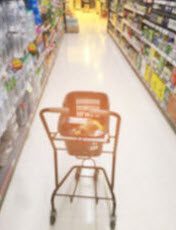Nationwide, slip-and-fall incidents are the leading cause of emergency room visits. Every year, over eight million victims receive hospital treatment after a slip and fall. Since many of these victims are older adults, these cases are often quite complex. Even a brief hospital stay may result in significant medical bills, not to mention lost wages and other losses.
So, a Brandon slip and fall attorney may be able to obtain substantial compensation in these matters. The grocery store owner may be liable for economic losses, such as medical bills, as well as noneconomic losses, such as pain and suffering. Additional punitive damages may be available as well, in some extreme cases.
Legal Duty in Grocery Store Slip and Falls
Everyone Inside a grocery store is usually an invitee. These individuals have at least implied permission to be on the property, and they benefit the owner in some way.
An “Open” sign is an implied invitation. Employees, of course, have specific permission to be on the property. Even after their shift is over, they are still invitees.
As for the benefit, any actual or potential benefit suffices, in this context. So, even if the customer did not buy anything or never intended to buy anything, the customer is still an invitee. The same logic applies to people like product vendors and job applicants. Furthermore, employees benefit the owner, even though the employees benefit from the relationship as well.
Typically, if the victim was an invitee, the owner had a duty of reasonable care. The owner must keep the grocery store free from fall hazards, such as a banana peel or a wet spot on the floor.
A lesser duty applies in other situations. For example, people who cut across the parking lot are usually licensees. These people have implied permission to be on the property, but their presence does not benefit the owner. Because of the lesser relationship, owners only have a duty to warn about latent (hidden) defects, such as a loose handrail.
Knowledge of Dangerous Hazards
Next, the victim/plaintiff must establish that the owner knew about the hazardous condition. Sometimes, there is direct evidence of actual knowledge. Smoking guns like restroom cleaning reports and “cleanup on aisle five” announcements usually surface during the discovery process.
But in most cases, victim/plaintiffs must use circumstantial evidence of constructive knowledge (should have known). To evaluate this evidence, most judges use the time-notice rule, which comes from Anjou v. Boston Elevated Railway Company.
Ms. Anjou slipped on a banana peel, which witnesses described as black and gritty, and the owner denied that it knew about the offending peel. The court concluded that, since the peel was black, it had been on the floor for a long period of time, and an employee should have cleaned it up. Conversely, if the peel was yellow, it probably just fell on the floor, so there is no constructive knowledge.
The “Eggshell Skull” Doctrine
As mentioned, many fall victims are older people. These victims often have pre-existing conditions, such as a bad knee, which worsen their injuries.
According to the eggshell skull rule, negligent owner must accept victims as they are. If the fall aggravated a pre-existing condition, and not the other way around, the owner is fully liable for all damages. Tortfeasors (negligent actors) should not profit from a victim’s inherent weakness.
Contact Experienced Attorneys
Slip-and-fall victims often sustain serious injuries in grocery stores. For a free consultation with an experienced personal injury lawyer in Brandon, contact Reed & Reed, Attorneys at Law. We have four area offices (St. Petersburg, Lakeland, Tampa, and Clearwater).
Resource:
nfsi.org/nfsi-research/quick-facts/




